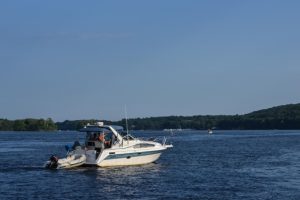Boaters in Florida face many hazards while out on the water, from perilous weather to reckless operators. Underwater dredge pipes are a hidden risk. 
Dredge pipes are used to conduct dredging operations, which are intended to clean out the bed of a harbor, river or some other area of water by scooping out the weeds, mud and trash. These sites are essentially construction zones on the water, and yet, they are usually not visible to boaters. They can pose a serious danger for approaching vessels, particularly in low visibility conditions.
That is why the companies and government agencies responsible for carrying out these operations owe a duty of care to make sure there are warnings or signs so boaters know to steer clear. The recent case of C.F. Bean v. Barhanovich involves a boater who was killed when the outboard engine of his fishing boat struck an underwater dredge pipe. The pipe flipped into his boat and fatally struck him.
One of the companies responsible for dredging operations, settled with the estate of the boater for wrongful death and the company later pleaded guilty to a single count of misconduct or neglect of ship officers in a criminal proceeding.
While the wrongful death claim had been pending, the defendant company filed a third party complaint against the Suzuki Motor Corporation. The claim alleged the engine manufacturer was responsible for product liability. Specifically, the allegation was that there was a structural failure of the swivel bracket of the outboard motor on the boat. But for this, dredging company argued, the motor and spinning propeller wouldn’t have moved into the occupant space of the boat and wouldn’t have injured or killed decedent.
After the claim with the boater’s estate was settled, a district court reviewed the product liability claim and granted the boat engine manufacturer’s motion for summary judgment.
On appeal, the dredging contractor argued that summary judgment was improper because the district court made a mistake in excluding the dredging firm’s two expert witness reports, relying on the criminal proceedings to decide issues of civil liability, failing to apply the superseding cause doctrine and holding that the dredging firm couldn’t meet its summary judgment burden absent expert testimony. The U.S. Court of Appeals for the Fifth Circuit affirmed in part, reversed in part and remanded for further proceedings.
The second report had been excluded not on its merits, but rather because it was untimely. That expert had opined that there was an economically feasible alternative design that would have lessened the hazard.
It was an abuse of discretion, the court ruled, to exclude this expert witness report as untimely because the dredging operator had provided a reasonable explanation for failing to disclose this expert opinion by the deadline. Specifically, the firm reported it couldn’t obtain discovery from Suzuki until Suzuki answered its third-party complaint, which didn’t happen until well beyond the expert witness disclosure deadline. This, the appeals court ruled, was a reasonable explanation for failure to disclose the second witness’s opinion by the deadline. In fact, the expert witness’s opinion relied in part on information he couldn’t have received except through discovery.
Because the dredging firm hadn’t acted in bad faith on this point, the court reversed summary judgment and remanded for trial.
If you have been involved in a Fort Myers boating accident, it’s important to seek experienced legal help.
Call Associates and Bruce L. Scheiner, Attorneys for the Injured, at 1-800-646-1210.
Additional Resources:
C.F. Bean v. Barhanovich, Nov. 4, 2016, U.S. Court of Appeals for the Fifth Circuit
More Blog Entries:
Schaefer v. Universal Scaffolding & Equip. LLC – Defective Scaffolding Results in Construction Accident Injury, Oct. 28, 2016, Fort Myers Boating Accident Attorney Blog
 Florida Injury Lawyer Blog
Florida Injury Lawyer Blog





